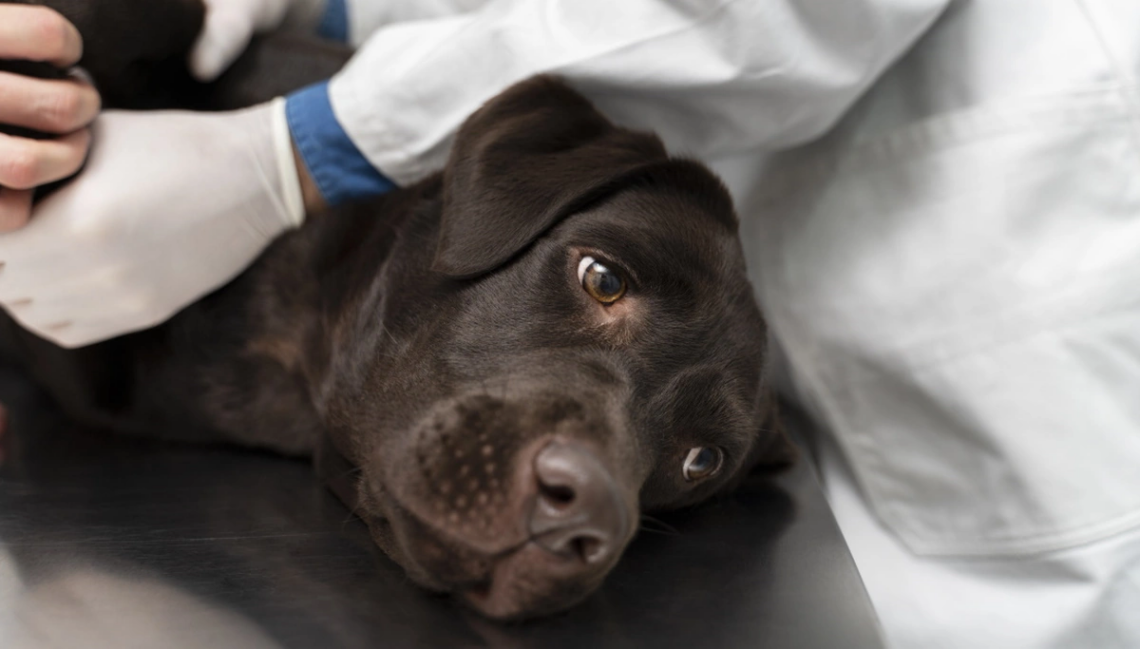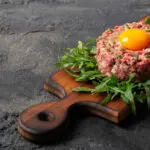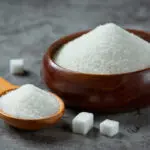(Original Article Published via RawFoodForPets.com)
Kidney Disease and Diet
It is estimated that over half of all pet cats over the age of 10 suffer from chronic kidney disease (CKD), which is also often referred to as chronic renal disease or chronic renal failure.
Traditionally, vets have recommended restricting protein consumption because bad quality protein is poorly metabolized by dogs with kidney failure. Protein creates a high nitrogen load that can further stress the liver and kidneys. The problem is, that most McKibble and McCan are made of poor quality protein that is not easily digested or utilized and this is what places the stress on the kidneys. To get quality proteins that are easily digested into your dog, a fresh food diet should be fed. Kibble is not a good option for these dogs.
The second reason kibble can further stress dogs with kidney failure is that dry food is very low in water (15 to 20% compared to 80 to 85% in fresh foods). Kidney disease dehydrates your dog and the dehydration causes him to feel ill – just like a hangover. He will have much better luck at staying hydrated if fed a fresh diet.
Generally speaking, kidney disease involves any insult (do harm) to the kidneys. If the insult continues, the kidneys can experience failure. Kidney failure can be divided into either acute or chronic failure.
As stated by Dr Messonnier is his book “Natural Health Bible for Dogs and Cats“, acute failure can occur in dogs and cats of any age, although most commonly younger pets are affected. Acute failure can occur from a number of causes. Pre-renal causes (not directly involving damage to the kidney) of acute failure include low blood pressure, low blood volume, heart failure, and certain medications such as non-steroidal anti-inflammatory medications and ACE inhibitors such as enalapril.
Renal causes (involving direct damage to the kidneys) include intrinsic kidney diseases, toxins that directly attach the kidneys (such as antifreeze poisoning or aminoglycoside antibiotics), cancer of the kidney, kidney trauma (kidney stones, direct trauma), congenital disorders (polycystic kidney disease, renal cortical hypoplasia), and infections (leptospirosis in dogs, feline infectious peritonitis in cats). Post-renal causes (involving a blockage or urine outflow from the kidneys or bladder) or acute failure include bladder stones, urethral stones, bladder cancer, and feline lower urinary tract disease (including urinary tract obstruction that is most commonly seen in male cats).
Defunct Waste Management Systems …
Kidneys are vital organs that have been tasked to take waste out of our, and our fur kids, blood, balancing body fluids, and making pee. Kidneys act as the bodys waste filtration system. They have the same function as your human kidneys. Kidney (renal) disease occurs when kidneys are damaged and cannot filter blood correctly. Over time, the waste build-up in the body, which can cause additional health problems, and eventually lead to kidney failure. In mutts, pups, nobles and masters, the kidneys use about 20 percent of their hearts blood to operate. Unlike the liver, kidneys cannot rejuvenate.
Over and above waste management, kidneys are also responsible for:
- Balancing the water level
- Regulating the blood pressure
- Regulating the red blood cells
- Regulating the acid level
Chronic kidney disease (CKD) (also referred to as Chronic Kidney Failure / CRF) indicate a gradual loss in kidney function over time, whereas acute kidney disease (AKD) or failure (also referred to as Acute Renal Failure / ARF) is the condition in which the kidneys suddenly lose the ability to function properly. As kidney functionality diminishes, waste levels build-up in the blood causing your mutts, pups, nobles and masters to feel sick. Sub-optimal kidneys can also lead to high blood pressure, low blood iron (anemia), bone weakening, nerve damage, and poor nutritional uptake. While a dog only needs one kidney to live, when one is in distress, it can lead to failure in the other.
Some causes of kidney failure, more specifically acute kidney disease (AKD), are easy to diagnose and treat by your vet. However, the onset of CKD is slower, making the causes harder to diagnose and treat. Causes of acute kidney disease can be the result of eating some type of toxins such as poisonous plants, antifreeze, certain medicines, or bad feed. Accidental eating of pesticides or the chemicals pet parents use in our homes for pests is one of the top causes if you consider some of the veterinary literature available. Even some natural human supplements, such as vitamin D, can be very poisonous to your dogs organs – just refer to the current McKibble and McCan debacle. According to Dogs Naturally Magazine, other causes of kidney failure can be attributed to:
- vaccinations;
- stress;
- high blood pressure;
- trauma to the kidneys;
- infection;
- poor quality, processed diets.
Read More: Natural Options For Kidney Disease & Failure, Dana Scott (DNM)
Underlying illnesses may also exist that cause the flow of blood to your fur kids kidneys to decrease, create infections, or form urine blockages. One of the more surprising causes of CKD is dental disease. The bacteria from their dental disease gets into their bloodstream and causes damage to their organs. However, some pets are born with poor kidneys and are never able to operate at optimum levels. Other possible causes of kidney disease and failure include autoimmune diseases, diabetes, amyloidosis, Lyme disease, cancer, severe dehydration, and trauma.
There are also specific breeds that are more predisposed to kidney disease and failure:
- Samoyed
- Bull Terrier
- Cairn Terrier
- German Shepher
- English Cocker Spaniel
Read More: Cats with Chronic Renal Failure (CRF) – How Different than CRF in Dogs? Chew et al (WSAVA)
Cats are more often diagnosed with IRIS (International Renal Interest Society) Stage 1 (not azotemic) & 2 (minimally azotemic) chronic kidney disease (CKD) compared to dogs .
What Are the Signs of Kidney Disease and Failure?
The signs of acute kidney disease can appear suddenly and be quite grave. Acute kidney failure is a life-threatening emergency, and your pets recovery is dependent on the kidneys degree of damage, what caused the damage, and the treatment. Good treatment can often turn acute kidney failure around. However, sometimes acute kidney failure becomes chronic kidney disease. The real challenge is that the onset of chronic kidney disease is slow and difficult to see. Providing supportive treatment can help your pet become and stay stable, but, chronic kidney disease is usually irreversible.
The top three symptoms of acute kidney failure are:
- Loss of appetite;
- Vomiting;
- Extreme lethargy and excessive sleeping.
Other symptoms of acute kidney failure include:
- Problems or straining when urinating;
- Weakness;
- Disorientation;
- Increased or decreased thirst;
- Shivering or trembling.
Symptoms of Chronic Kidney Disease (CKD)?
The signs and symptoms of CKD may be like other and often-underlying conditions such as hypertension or anaemia. These symptoms may not show up until the kidneys have lost at least 70 percent of their function, and what you have noticed most is a change in your pets well-being. While all these symptoms of CKD may not appear in every dog, here are some signs to look for:
- Increased thirst and urination;
- Decreased appetite;
- Weight loss;
- Bad breath;
- Vomiting and diarrhoea;
- Sore mouth or mouth ulcers;
- Weakness;
- Lack of energy and increased sleeping;
- Poor coat appearance;
- Depression;
- Seizures;
- Acute blindness;
- Diarrhoea or constipation;
- Uncoordinated gait;
- Blood in the urine;
- Swelling of bone structure, such as in a dogs face.
Chronic kidney disease refers to all 5 stages of kidney damage, from very mild (stage 1) to complete failure (stage 5). The stages of kidney disease are based on how well the kidneys can do their job. In the early stages of kidney disease, your kidneys are still able to filter out waste from the blood. In the later stages, your kidneys must work harder to get rid of waste and may stop working altogether .
Read More: Stages of Chronic Kidney Disease (CKD) (American Kidney Fund)
Why Real Food for Pets with Kidney Disease Can Make a Difference
If you review available veterinary literature, the cornerstone of kidney disease treatment is fluid therapy and supportive nutrition. Your vet will most likely administer medication to your pet, but these are only to decrease some of the symptoms of the disease. Many pets can live for years with kidney disease if it is caught early and treated appropriately.
Often your vet will teach you how to perform perfusion fluid therapy under the skin with an IV; something that you can do at home. Sometimes, to protect your pet from the effects of low electrolytes, your vet will add potassium to the fluid or the diet. Electrolytes are the substances in living cells that help the body conduct electricity. These include sodium, potassium, calcium, magnesium, and phosphates. Electrolytes can get dangerously low when a pet is dehydrated, causing further dehydration and organ damage. Supportive nutrition for pets diagnosed with kidney disease includes foods with reduced levels of phosphorus and sodium and increased levels of omega-3 fatty acid. Additionally, the quality of the protein that you feed your pet is critical for their disease management and overall well-being.
Most vets will advocate that when there is any evidence of kidney disease, the protein level in the diet should be reduced. This is not correct for most animals. Protein reduction has little impact upon the progression of kidney disease. In fact, reducing the protein level in the diet may reduce the effectiveness of the kidneys (the glomerular filtration rate . This is tied to protein in the diet, and reducing the protein reduced the filtering thus decreasing the excretion of toxins. Studies in rats have demonstrated that extra protein induces excessive glomerular filtration, and restricting dietary protein prevents progression of renal failure, with minimal evidence to support this theory in either people or dogs. Though this has not been shown to occur in dogs or cats, this data is used by the veterinary practitioners to support the concept of dietary protein restriction in mutts, pups, nobles and masters. However, this assumption does not make sense, as dogs and cats are carnivores, whereas rats are primarily herbivores; and the difference in species would account for different protein needs?
Read More: Estimated Glomerular Filtration Rate (eGFR), (National Kidney Foundation), Nutritional Management of Chronic Renal Disease, Fascetti et al (UCDavis)
By now you will recognize that much controversy exists in the pet food market and among veterinarians about high- versus low-protein diets for pets. The current (and revised) recommendations regarding protein content have only come along in the last five years, so you must ensure that any resources you use for guidance are from a much later time-frame. Many vets still recommend feeding a low-protein diet. Some vets may also recommend a low-protein diet to resolve other medical problems historically associated with kidney disease, but a low-protein diet may not be the best choice for our fur kids. With kidney disease, your dog needs to have perfusion (movement of fluids through organ, such as blood) so that toxic wastes have a better chance to filter out of the body. The reality is that low-protein diets decrease perfusion of the blood flow through the kidneys. With decreased circulation, there is an increase in kidney cell death which is what causes the signs and symptoms of kidney disease.
Instead, you should be fooding a high-quality protein (real food) to your pets with kidney disease. However, the quality of the protein is critical and can vary in pet feed. There are proteins that your dogs body can absorb easily, such as raw meats or eggs. Similarly, there are proteins that have been dehydrated or processed that your dog can not digest at all. To compound the issue, some sources of protein (like soy protein) are neither biologically, nor species, appropriate for your dog. Soy protein has little to no biologic value for your pet, but it is an inexpensive way for McKibble and McCan to assure protein content on their labels. Processed and dehydrated protein is hard on your dogs body . As your dog ages, they need better, high-quality, biologically and species appropriate protein. And kidney disease is rarely a young dogs diagnosis.
Read More: Pets, Protein, Dry Food and Disease, Dr Becker (Mercola)
Dogs do have a natural tendency towards eating meat, they are after all facultative carnivores. Many scientists and experts also fight over whether dogs are natural omnivores, meaning they eat both meats and grains, or carnivores, meaning they only eat meat. At DoggyChef, we subscribe to the concept of facultative carnivores, unlike cats, whom are obligatory carnivores. The challenge with pet feed is that McKibble consists of between 30 – 60 percent plant matter, making it an inappropriate diet choice by these standards. Some experts also say the diet you feed your dog should be dependent on your dogs stage of renal disease. In the early stages of kidney disease (Stage 1 and Stage 2), experts recommend feeding your dog high quality, easily digestible food. In the later stages, considered kidney failure, that is when you need to decrease the protein level. Vets often suggest this diet change once they find protein in a dogs urine, which can make it harder for your dogs kidneys to digest highest levels of protein. However, if you have your dog on dialysis, you must increase their protein intake, as dialysis removes protein waste and proteins from the blood. Before making any diet changes at any of these stages, first talk to your vet and get a specific recommendation suited to your dogs needs.
What Should a Good Food Diet Entail?
You might be wondering what you should fooding your pack. And perhaps whether you should make your own food or look for a commercially pre-made brand. There is certainly more control when you make your own food since you know exactly what your pet is eating. Whether you plan to fooding a home-made diet or use commercial (pre-made) food, it is imperative that the food meets their dietary needs. For dogs with renal health issues, food them a diet of high-quality protein with low phosphorus and sodium, and added omega-3 fatty acids, such as a mix of good quality meat, veggies, and either a supplement of omegas or fish, flax, sardines, or anchovies. You want a good variety of protein, ideally raw. Avoid kibble because it can cause dehydration. Making your own dog food can be time and labour intensive, but if you do make it follow a formula so that you do not overlook any crucial ingredients. To provide a complete and balanced diet, in addition to the primary food components, there are additional nutrients that need to be added. And providing those nutrients in the right quantities and an effective manner can sometimes be difficult to do at home.
Some principles to remember on this diet are that you can and should adjust it based on what is available, especially over the course of a week. Just what a balanced diet is, is the subject of much speculation and debate in the veterinary community. The basic recommendation over the course of the week is:
- 12-15% meaty bone;
- 10-30% organ meat;
- 30-50% muscle meat;
- 5% fish.
Keep extra fats low, starch non-existent, and above all, offer your dog variety. Fish is always a good idea, but only once or twice per week.
As highlighted by Dr Connor Brady, beef mince, beef tripe, lamb or pork is a really good choice for dogs with kidney failure. Red meat is generally lower in phosphorus than white chicken, turkey or fish meat. Remember though, red meats can be a bit fattier. Moderate fat content is fine for dogs with kidney disease, but a high-fat diet is not. What is needed is leaner red meats not fatty pet minces. Unfortunately, it is necessary to go very easy on the organ meats (liver, spleen etc), as they are as generally higher in phosphorus. The organ meat they do need though is fresh kidney, so continue to include a small amount of this is in the diet at a 3-5% inclusion rate.
Pre-made diets can be fine for your dog with kidney disease, if you find food that can meet their dietary needs. Unfortunately, most feed (McKibble and McCan) at pet stores will be too high in phosphorus to produce the desired effect. As kidney disease progresses, your dog will need to have lower levels of phosphorus. Food with high moisture content is critical for your dogs renal diet. Raw diets, that feature high-quality protein, are the gold standard.
For mutts, pups, nobles and masters with kidney disease, quality food should consist of the following:
- Real raw animal protein;
- Whole Fruits and Vegetables;
- Fresh;
- Moisture Content between 80 -85%;
- Easily Digestible Proteins.
What Are Possible Diseases or Conditions That Can Lead to Kidney Failure in Dogs?
There are often underlying conditions that lead to kidney failure and are usually long-term and progressive. Kidney failure is not always the predominant condition but is often an after-effect of other conditions or diseases. Sometimes, if your vet treats the underlying cause, they can also reverse the kidney distress. What you need to remember is that all the organ systems in your pets are connected, and when one organ has problems it can often lead to issues with others. Some of these conditions or diseases are:
- Congestive Heart Failure;
- Hyperphosphatemia;
- Liver Failure;
- Hepatic Encephalopathy;
- Acidosis;
- Anemia;
- Bone Pain/Increased Fractures;
- Uremic Crisis;
- Hypertension.
How Do We use Food to Prevent Kidney Failure in Dogs?
Not every cause of kidney failure is known or understood, nor can every case of ARF or CRF be prevented. However, there are several things within your control that can go a long way toward promoting the health and longevity of your precious pups vital kidney function, as highlighted by Dr Karen Becker .
Read More: Canine Kidney Failure: Causes, Treatment and Prevention, Dr Becker (Mercola)
- Many situations of acute renal failure can be prevented by ensuring dogs are kept safely away from toxic substances like antifreeze, heavy metals, rat poison and other pesticides, common household medicines, and certain foods and plants;
- Any dog with a bacterial infection, urinary obstruction or other illness that could lead to compromised kidney function should receive proper treatment, the sooner the better;
- Insuring your dog is never struck or kicked or gets out in a roadway will prevent possible trauma to her kidneys that could lead to renal failure;
- Limiting the drugs, vaccines and surgical procedures your pet is subjected to throughout her life will reduce the amount of toxins her liver and kidneys must process. Kidney failure in elderly dogs is usually the result of worn out organs. The less stress on your pets kidneys, the longer they will do their job effectively;
- Feeding a balanced, species-appropriate diet instead of commercial pet food will supply your dogs body with the fundamental nutrition he or she requires for the health of every organ and system in his body, including his kidneys. Low quality, highly processed pet feed such as McKibble dry kibble, which lacks the moisture content and quality protein pets need – are being linked to many of the degenerative diseases seen in pets today;
- Take note of even small changes in your pets behaviour, appetite, thirst and energy level. Do not assume increased thirst and urination is nothing to be concerned about. Trust your inner voice if it tells you to make an appointment with your holistic or integrative vet to discuss the state of your dogs health. With any degenerative condition there is opportunity while your pet is in the gray zone between health and illness, to slow, halt or even reverse movement toward the black zone and full-blown disease;
- Perform regular at-home wellness exams and make sure your pup gets at least one and preferably two wellness visits with your holistic or integrative vet each year. This is the best way to stay on top of your pets health and address problems as they arise.
Can we use Supplements to Help Manage Kidney Disease in Dogs?
The inability of your masters’ kidneys to properly filter waste products from the blood, maintain water and electrolyte balance, and even make red blood cells is one of the most common disease processes seen in cats with kidney disease. In the early stages of disease, cats compensate well for the decrease in kidney function, but as the disease progresses, more interventions are required to keep your master with kidney disease feeling well. Many of these interventions provide supplemental nutrients, vitamins, minerals and fluids.
Over and above real food, vitamins, minerals, omega-3 fatty acids and anti-oxidants is required to extend the survivability of your master.
Vitamins and Minerals
Pets with chronic kidney disease make large volumes of urine, they are also excreting large volumes of water soluble vitamins, like B vitamins and potassium. Supplementation of B vitamins, orally or as part of a an appropriate real food diet, helps to maintain adequate levels of these important nutrients. Since low potassium levels are so prevalent in cats with chronic kidney disease, several commercial potassium supplements are available in formulations designed to appeal to the most finicky felines. Many of the potassium supplements also contain B vitamins and other ingredients designed to support kidney function. Iron deficiency is a common mineral deficiency in cats with chronic kidney disease. Cats may lose iron due to bleeding ulcers or may not take in enough dietary iron if they have a poor appetite. Oral administration of iron can cause stomach upset, so most often injections are the favoured method of iron supplementation in cats.
Omega-3 Fatty Acids and Anti-oxidants
Inflammation and oxidation play a role in the progression of chronic kidney disease. In dogs, omega-3 fatty acids have beneficial anti-inflammatory effects in chronic kidney disease and are often included in kidney-friendly diets by the addition of fish oil. The impact of omega-3 fatty acids on cats with chronic kidney disease is less clear. Vitamin C, Vitamin E and rosemary are typical natural antioxidants added to kidney-friendly pet food. Omega-3 fatty acids and antioxidants can also be supplemented separately from kidney-friendly diets.
Phosphate binders
Often, reduction of dietary phosphorus does not correct elevated phosphorus levels. When this occurs, veterinarians often prescribe phosphate binders to trap phosphorus in the intestines where it is excreted in the faeces. To be effective, phosphate binders need to be administered with every meal. Several manufacturers have developed feline specific phosphate binders in supplement form. Historically, aluminium hydroxide was commonly used. However, recent research has demonstrated that persistent consumption of an aluminium containing product can be toxic to ailing kidneys. Other commercial phosphate binders include calcium carbonate, calcium acetate, sevalamar HCL, and lanthanum carbonate. These products are mostly either yucky-tasting liquids or pills that most cats will not take easily.
One fairly easy and effective way to reduce the overall phosphorus in a cat’s diet without sacrificing protein is to add cooked egg whites to the meal. Egg whites contain much less phosphorus per gram of protein than other protein-rich foods such as meats or fish. To reduce phosphorus without restricting protein you could replace 33g of meat, with one cooked egg white and your cat would be consuming considerably less phosphorus in that portion.
Supplements and Fluids
When kidneys can no longer regulate water balance, a sick cat may not feel up to drinking adequate amounts of water and will become dehydrated. Even the most squeamish owner can be taught to administer supplemental fluids under the skin (subcutaneous) to keep their cat well hydrated.
In Summary
As stated by Dr Becker, the food you feed your fur kids with chronic renal failure is critically important for disease management and overall well-being. A reduced amount of high-quality protein and high moisture content are essential, but phosphorus intake must be restricted. Since phosphorus is found primarily in high protein food sources, you can quickly see the need for expert guidance on how to best nourish your pet.
Your integrative / holistic vet is your best resource for advice on the right diet for your pets condition, and also what supplements, medications if necessary, and other therapies will help sustain your dogs health and quality of life.
Articles and Videos
Please do read Dr Conor Bradys articles on the topic:
- Kidney Failure in Dogs Part 1: 9 Reasons Why Have it in the First Place
And Dr Peter Dobias article on a holistic approach to kidney disease treatment Natural Kidney Support for Dogs, Dr Peter Dobias (Blog)
Other research includes:
- Acute Renal Failure in the Dog and Cat: Causes and Outcomes Larry D Cowgill (WSAVA);
- Common Toxins That Cause Acute Kidney Injury in Dogs and Cats, Emma-Leigh Pearson (MedVet);
- Chronic Kidney Disease and Failure (CKD, CRF, CRD), (VetMed).
- Natural Health Bible for Dogs & Cats, by Dr. Shawn Messonnier (Amazon) or Google Books (Google);
- Dr Peter Dobias wrote an excellent blog article (Dr Pet Dobias) regarding holistic approach to kidney disease treatment;
- A collection of articles by Mary Straus (Dogaware) ;
- Canine Diet For Kidney Failure by Dogs Naturally (Dogs Naturally Magazine);
- Canine Kidney Failure: Causes, Treatment and Prevention, by Dr Karen Becker (Mercola);
- Two Innocent Mistakes That Could Set the Stage for Kidney Disease, by Dr Karen Becker (Mercola);
- Your Pet’s Kidney Failure — Where’s It Really Coming From?, by Dr Karen Becker (Mercola);
- This Slow Progression of Dying Is Often Masked Till It’s Too Late, by Dr Karen Becker (Mercola);
Research
- Ross L. Acute kidney injury in dogs and cats. Vet Clin North Am Small Anim Pract. 2011;41(1):1-14. doi:10.1016/j.cvsm.2010.09.003
- Legatti S, El D, Legatti E, et al. Acute kidney injury in cats and dogs: A proportional meta-analysis of case series studies. PLoS One. 2018;13(1):e0190772. doi:10.1371/journal.pone.0190772
- Wills M, Savory J. Aluminum and chronic renal failure: sources, absorption, transport, and toxicity. Crit Rev Clin Lab Sci. 1989;27(1):59-107. doi:10.3109/10408368909106590
* Disclaimer: This information is for educational purposes only and is not intended to replace the advice of your own veterinarian or doctor.





